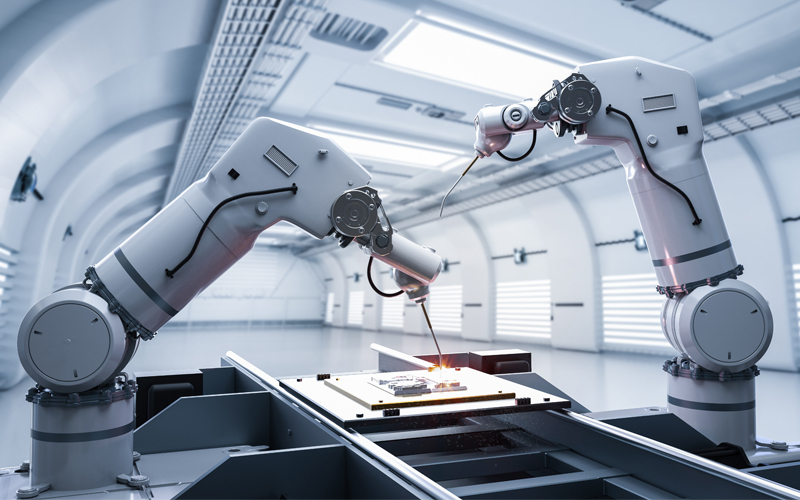Industrial embedded computers are specialized computing systems designed to operate in harsh environments and perform specific tasks within industrial settings. These robust devices, also known as industrial computers or embedded box PCs, differ significantly from consumer-grade computers in their construction and capabilities.
Industrial embedded PCs are built to withstand extreme temperatures, vibrations, dust, and electromagnetic interference. They typically feature fanless designs, solid-state storage, and rugged enclosures to ensure reliability in demanding industrial environments. These characteristics make industrial embedded computers ideal for applications requiring continuous operation and real-time data processing.
|
Feature |
Industrial Embedded Computer |
Consumer-Grade Computer |
|
Durability |
Rugged design for harsh environments |
Designed for office or home use |
|
Operating System |
Often uses Real-Time Operating Systems (RTOS) |
General-purpose OS (Windows, macOS) |
|
Lifespan |
Extended lifecycle (5-10 years) |
Shorter lifecycle (2-5 years) |
|
Reliability |
High MTBF (Mean Time Between Failures) |
Lower MTBF |
|
I/O Options |
Extensive industrial-grade I/O |
Limited consumer-grade I/O |
|
Real-Time Capabilities |
Designed for real-time processing |
Not optimized for real-time tasks |
Real-time data processing is a critical function of industrial embedded computers. It involves the immediate analysis and response to data as it is generated or received. In industrial settings, this capability is essential for maintaining control over processes, ensuring safety, and optimizing operations.
Industrial embedded PCs excel at real-time data processing due to their specialized hardware and software configurations. They can handle high-speed data streams from sensors, cameras, and other input devices, making split-second decisions based on predefined algorithms or rules.
Industrial embedded computers play a crucial role in automation systems. They control machinery, coordinate robotic movements, and manage production lines. These embedded industrial PCs process data from various sensors in real-time, allowing for precise control and rapid response to changing conditions.

In industries such as chemical processing or power generation, industrial embedded computers continuously monitor and control critical processes. They analyze data from temperature sensors, pressure gauges, and flow meters, making adjustments to maintain optimal operating conditions.
Embedded box PCs are integral to quality control systems in manufacturing. They process data from vision systems and other inspection tools in real-time, identifying defects and triggering corrective actions immediately.
Industrial computers analyze data from equipment sensors to predict potential failures before they occur. This real-time processing allows for timely maintenance, reducing downtime and extending equipment life.
Industrial embedded PCs are built to withstand harsh conditions. They often feature sealed enclosures, passive cooling systems, and components rated for extreme temperatures and vibrations.
Many industrial embedded computers use specialized RTOS that prioritize deterministic behavior and low-latency responses. These systems ensure that critical tasks are executed within strict time constraints.
The ability to process data with minimal delay is crucial for real-time applications. Industrial embedded computers are optimized for low-latency operations, enabling quick decision-making and rapid response times.
Industrial embedded PCs are designed for continuous operation, often running 24/7 in critical applications. They incorporate features like redundant power supplies and error-correcting memory to maximize uptime.
Modern industrial embedded computers offer modular designs and expandable I/O options. This flexibility allows for easy integration with existing systems and adaptation to changing requirements.
While industrial embedded computers excel at real-time data processing, they face several challenges:
1. Data volume and velocity: The increasing amount of data generated by industrial sensors and devices can overwhelm processing capabilities.
2. System integration: Integrating embedded PCs with legacy systems and diverse data sources can be complex.
3. Security concerns: As industrial systems become more connected, protecting them from cyber threats becomes increasingly important.
The field of industrial embedded computing is evolving rapidly. Some key trends include:
1. Edge computing: Processing data closer to its source reduces latency and bandwidth requirements.
2. AI and machine learning integration: Embedded industrial PCs are incorporating AI capabilities for more advanced decision-making.
3. IoT and Industry 4.0: Industrial embedded computers are becoming central to the interconnected, data-driven factories of the future.

At BVS, we specialize in developing and manufacturing high-performance industrial embedded computers. Our product range includes rugged embedded box PCs, fanless industrial computers, and custom embedded solutions designed for various industries. We focus on creating reliable, high-performance systems that withstand harsh industrial environments. Our embedded PCs feature industrial-grade components and advanced thermal management systems, ensuring consistent performance in challenging conditions. Whether it's a compact embedded PC for space-constrained applications or a powerful industrial computer for complex data processing tasks, we have the expertise to deliver tailored solutions that meet the unique requirements of real-time data processing in industrial settings.

Click to confirm
Cancel